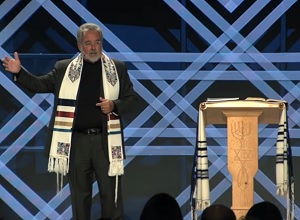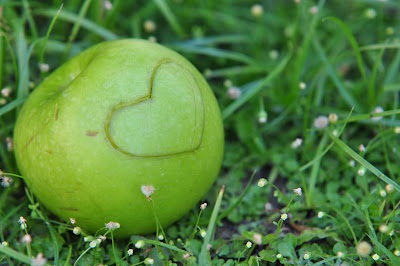The Rosh Hashanah is one of the Holiest Jewish Holidays and also one of the most celebrated because it is the Jewish New Year. For the year 2023, the Rosh Hashanah starts on September 15, Friday and ends on September 17, Sunday.
Jewish Sages believed this event was the start of man’s creation.
Also called the “head of the year” or “beginning of the year”, this Hebrew event is commemorated with good food, prayers, and family get-togethers.
More people are becoming aware of this Jewish event and those who are not may want to learn a few essential things about this holiday.
Who knows you may gain a friend who practices Judaism and you want to respect their beliefs by knowing what to do during Rosh Hashanah.
So, below are the top 10 things you may want to remember during Rosh Hashanah.
Top 10 Things to Remember on Rosh Hashanah
1. Rosh Hashanah is a day of rest.
During this holiest 2-day Jewish holiday, devout Jews avoid driving, doing heavy work, or business. Travel is also avoided by many communities. Just like how New Year’s Day is celebrated by Christians as a holiday, this Jewish New Year is also a day of rest.
This day could also mean a rest from taking a bath or a shower. Yes. However, you can depend on the advice of your community rabbi. Some rabbis prohibit showering, while some permit showering the upper part of the body or washing the hands and feet only. Some rabbis may permit showering of the whole body but you must do it part by part.
2. Say your morning prayers.
You can start the day by saying your morning prayers. Prayers are direct connections to whoever the Supernatural Being you consider as Supreme. There are prayer divisions in Judaism. Hence, you can learn the prayers through your community.
3. Blow the shofar.
The blowing of the shofar (ram horn) is one of the most important parts of the holiday. In addition, you may want to perform the “Tashlich” activity, which is done to cast away evil and bad spirits symbolically using a clean body of water.
In this particular year (2023) though, the shofar will not be blown on the first day because it is a sabbath day but rather on the second day (Sunday).
4. Wear appropriate clothing
Many Jews wear white because white indicates purity, sustenance, and a fresh start to the year. The color green can also be an option. Observe your community and adhere to its dress protocol.
You may want to avoid wearing clothing and materials made of leather.
5. Do your customary greetings
Remember to greet everyone an “L’shanah tovah” (for a good year) or simply say “shanah tovah” (a good year).
If you prefer to say, “happy holidays”, you can say, “chag sameach” (happy festival”.
You could also say, “L’shanah tovah u’metukah” (for a good and sweet year).
On the other hand, you can simply say “Happy Rosh Hashanah Day”. Surely, your Jewish friends will understand your well wishes.
6. Take pictures with family and friends.
The Rosh Hashanah is a momentous event for families and groups and it would be wonderful if you could capture these good memories forever through some awesome photographs.
Families traditionally observe the Rosh Hashanah together as this 2-day holiday is a no-work celebration. Sharing of food is common between family members and friends.
If you are visiting family or friends, you may want to bring kosher wine, apples or sweets as a gift.
7. Light your candles at night
During the night, light your candles as a symbol of remembrance. This activity must be done especially during the first night of the holiday.
As you light your candles, take time to self-reflect and cast away your past transgressions through meditation and prayers.
8. Observe the Rosh Hashanah menu.
Sweets are often included in the menu because they are believed to propel a sweet and delightful year ahead. Honey, chocolates, and cakes may be included.
Many Jews dip apples in honey to symbolize a prosperous new year ahead.
Some Jews serve pomegranates and round challah with raisins.
Sour and bitter foods are mostly avoided because they could signify the new year’s outcome being sour and bitter as well.
Pork, nuts, and shellfish are usually avoided but lamb and chicken meat may be served, together with rice, kujel, brisket, or sweet potato.
You may drink preferred beverages but not hard liquor. Apple cinnamon whiskey, apple cider, and the like are usually allowed.
The Kiddush (blessing of wine or grape juice) at the beginning of the event to sanctify it, can also be included in the food activity of the Rosh Hashanah.
If you happen to be out with family or friends during the commemoration and want to eat, you may visit these restaurants that serve Rosh Hashanah dinners.
9. Visit the synagogue
Usually, many believers visit synagogues to pray and observe a day of peace and calm. It is a day of celebration, but it is also a day of repentance, self-evaluation, and meditation.

Blowing of the shofar, praying and other services in the synagogues bring believers together in a spirit of unity.
Meanwhile, there’s a live video of the Rosh Hashanah celebration on YouTube. You may want to join in now, or watch it later.
10. Avoid using technology.
The use of cell phones and electric devices is often avoided by devout Jews because these devices presumably disturb the ambiance of peace and tranquility of the holiday season. There may be other reasons than this.
All these 10 reminders may not be observed by all Jewish communities though. Hence, you have to be aware of what your own community will want to observe.
Although, currently some anti Jewish incidents are threatening the peace of the celebration, rabbis and Jewish leaders are trying their best to hold a peaceful and successful Rosh Hashanah commemoration for all Jewish communities around the world.
N.B.
We all desire peace and unity in the world. Let’s pray for world peace and for all religions to keep us united. World Peace and Unity Prayer









